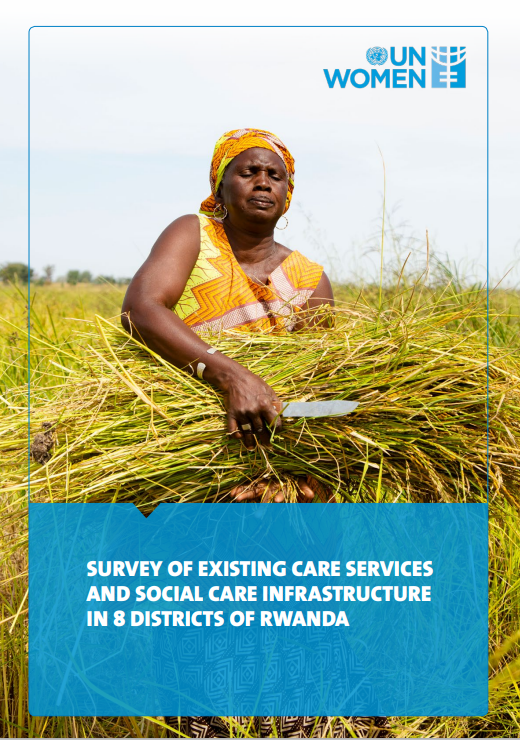
Care Services and Social Care Infrastructure

Unpaid care works takes up more time in the lives of women’s and girls’ compared to men and boys (UN-Women, 2019). This is mainly due to gender roles, stereotypes, and to a bigger extent, cultural gender norms and values. While women spend time doing the difficult work of attending to others' care needs for free, research shows that men rarely do so and are instead heavily invested in paid work on any given day (UN Women, 2022).
Unpaid caregiving is one of the leading causes of time poverty for women, according to a recent study performed in Rwanda by Oxfam in collaboration with the University of Rwanda. The findings revealed that women dedicate three hours to household duties, essentially unpaid care work, for every hour males do (UN Women, 2022). This means that high levels of poverty and a lack of public services make life more difficult for women and girls, as well as their families, making women more exposed to exhaustion.
It is in that framework that this survey identified the needs and barriers faced by rural and urban women regarding unpaid care work, identifying existing care services and social care infrastructures in 8 Districts of Rwanda targeted by UN Women, and assess their availability and functionality in addressing the needs faced by men and women affected by the burden of unequal unpaid care work.